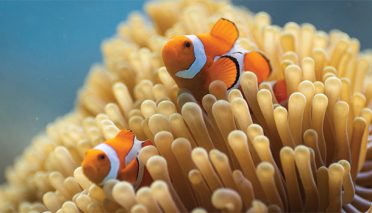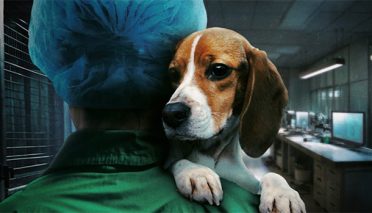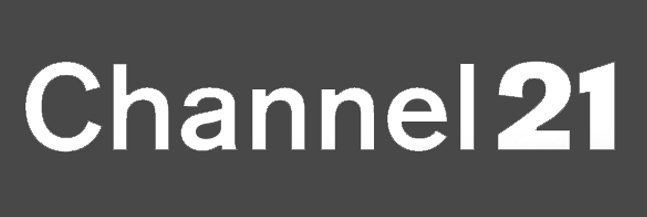 Olena Martynova, chief marketing officer at Ukraine’s Starlight Media, on war, AI, coproduction and valuing your most important business asset: people.
Olena Martynova, chief marketing officer at Ukraine’s Starlight Media, on war, AI, coproduction and valuing your most important business asset: people.
There are few arenas where ethical dilemmas are thrown up more than in war, but one of these is arguably artificial intelligence (AI). And while the business of content can seem fairly meaningless compared with survival on a battlefield, questions around ethics can be easily amplified – whether purposely or not – where AI is concerned.
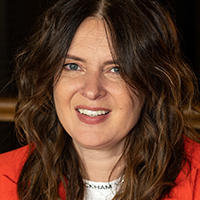
Olena Martynova
Olena Martynova, chief marketing officer (CMO) at Kyiv-based Starlight Media, found herself embroiled in one such ethical dilemma in early 2023. She and her creative team at Starlight, one of the leading Ukrainian media groups, had the job of promoting the launch of The Last Letter of a Loved One, a new TV drama, for the company.
However, in the time between the show being produced and going to air, war broke out with Russia, and one of the actors in the series had expressed his allegiance to Russia.
“We had a dilemma: what should we do? Should we save the series, in which some dozen Ukrainian actors were involved, or should we put it on the shelf and wait?” recalls Martynova, a veteran of the media industry and former strategic marketing director at another Ukrainian broadcaster, 1+1 Media.
“We decided to change this character by deepfake and replace him with a new Ukrainian actor and try to save the series and to broadcast it.”
The response from the Ukrainian people was swift and resounding. “We didn’t launch the series because, on its promotion, discussion was so emotional that we decided to stop,” admits Martynova. “The industry and society didn’t support us. It was a very emotional discussion about ethical issues. Even the actor [who replaced the original performer] was upset.”
The deepfake incident came about because of a challenge thrown up by war, namely not consorting with the enemy, but it also provided a useful, if difficult, lesson in what is permissible and what’s not in the use of AI.
Starlight Media now knows that AI is not the answer to the loss of value in its catalogue of content, much of which has become redundant since the outbreak of war because of the new sensitivities among Starlight’s Ukrainian audience.
“It doesn’t stop our interest in artificial intelligence and new technology, which we can use in our post-production and development stages,” notes Martynova.
But while AI may be able to solve some of the Ukrainian content industry’s production challenges, it can barely scratch the surface of the seemingly insurmountable problems facing media execs in Ukraine since Russia’s invasion in 2022.
“The biggest challenge for the Ukrainian [content] industry is to meet the requests of society. A lot of people in Ukraine understand Russian and nobody forbids the use of Russian content on YouTube, on open platforms, and this makes the issue even more challenging.
“We need to produce and distribute a lot of different entertainment content, but we don’t have enough money to produce, as we did pre-war. Neither do we have a lot of possibilities to do it, and some content from our library, or something in a [particular] project, [might be] no good for today.”
But Martynova is keen to highlight some recent positive takeaways for the industry, and Starlight in particular: “We have good news because from 2022 we’ve grown to 50% of our pre-war production capabilities and we are going to produce more than 500 hours of new content this year – the same volume as last year.”
The advertising market has picked up significantly too, says Martynova: “Now it is 50% of the pre-war level and we have more than 200 brands back on-air. This is very important for us.”
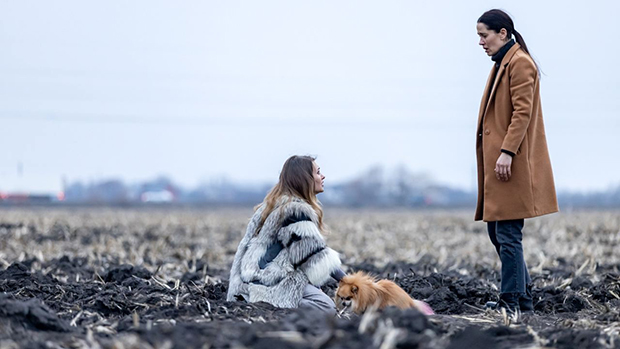
Starlight Media and Gaumont coproduction In Her Car has found international buyers
Starlight Media is among the largest Ukrainian broadcasting groups and comprises seven television stations – STB, ICTV, ICTV2, New Channel, M1, M2 and OCE TV – and nine other media and advertising companies.
Martynova manages a 150-strong award-winning marketing and design team. She describes her colleagues as “different specialists, from marketing director and brand managers to designers, editors and other very creative people.” They support “not only our TV brands and our new business, and our producers and showrunners who are developing projects, but, of course, our own YouTube channel. And we launched some FAST TV channel because we have a huge library and we want to make it work as a business.”
Another area overseen by Martynova is Starlight Creative, the international creative agency the firm launched in 2022. “It provides design, editing and marketing services for international TV channels, production teams, TV shows, series and movies,” explains Martynova.
“We now have clients in the US and Europe and we are proud we have projects with Disney, Warner Bros and A+E Networks. Also, we do a lot of branding and marketing packages for series. For example, for In Her Car, we did the marketing package including logo, posters, teasers and trailers, to support the business-to-business efforts. It was very important for us not only to support our project but to keep in touch with high-level international marketing expertise.”
In Her Car (10×30’) is a Ukrainian war drama coproduced by Starlight Media and France’s Gaumont. Other partners on the project include Germany’s ZDF, France Télévisions, Switzerland’s SRF, Finland’s YLE, Denmark’s DR, Norway’s NRK and Sweden’s SVT. Beta Film is handling international sales and the series has so far been sold into Japan (NHK), Latvia, Slovakia and Austria.
In Her Car is created by Eugen Tunik and was filmed last year in war-torn Ukraine. It tells the story of a woman, played by How is Katia? star Anastasia Karpenko, who embarks on a mission to bring people to safety following the Russian invasion in February 2022.
The series received its world and Ukrainian premieres in February, and garnered “25 million viewers at one point in the series” when launched in Ukraine, according to Martynova.
Martynova describes In Her Car as “a unique project” because it combines a large international coproduction focusing on a current Ukrainian story that tackles tough issues about what happens to relationships between people in wartime. “It’s difficult,” she explains. “There are serious questions when war happens that you have to respond to. It’s about relationships between husband and wife, between parents, between people in society, people who have fights and then make up.”
Despite these universal themes, from a marketing point of view, Martynova says her team have had to come up with a different promotional hook to match the cultural sensibilities of each market. “For example, in Ukraine, we talk about the powerful woman because it is a story about a woman. Our French colleagues, they focused the attention on the love triangle, and the German people are more into the action.”
Martynova describes coproductions as “a very important direction for us, because it is about investment by partners who can help us make a big project. But it also has an ideological aspect, because, for Ukraine, it’s a very big challenge to go to the European and international markets and cut off relationships with the post-Soviet market.”

Documentary Rave Toloka was coproduced with Radio Free Europe
As well as In Her Car, Martynova points to two documentaries that Starlight Media has coproduced: Pictures from War, with US-based Happy Accidents, and Rave Toloka, with Radio Free Europe, a US government-funded digital platform covering the entire Commonwealth of Independent States.
Martynova also singles out the Nordic model, where countries in the region have shown how effectively they can work together on the international stage, as one for Central and Eastern Europe to pay attention to.
She also points to the Ukrainian Content Club, which launched soon after the outbreak of war with a US$20m fund to invest in Ukrainian drama and received further investment from the international market. “We should find our own way to collaborate, [both] inside our country and with neighbours who are close to us in a cultural and economic context,” she says.
This is happening within Ukraine through the United Marathon News initiative, which was launched by the six main Ukrainian broadcasters in February 2022 to provide news around the clock. Although it has attracted its critics recently, the initiative demonstrates how people can collaborate when the chips are down, Martynova says.
“For United Marathon News, we united six marketing teams from six media companies as one big national marketing team,” she says. “Can you imagine that? We are all competitors and now, in the schedule, we have time for common meetings. But before these meetings and after them we think about how we can beat our competitors because we are all fighting for advertising money.”
Indeed, despite the horrors of the war, Martynova says it has highlighted the most valuable asset in her work: “People. You can do everything with people. Even with your competitors, it doesn’t matter who, if you have people who are very close to you, based on values or culture, you can do everything – create new projects, find new partners, win prizes. People are the most important [thing].”





